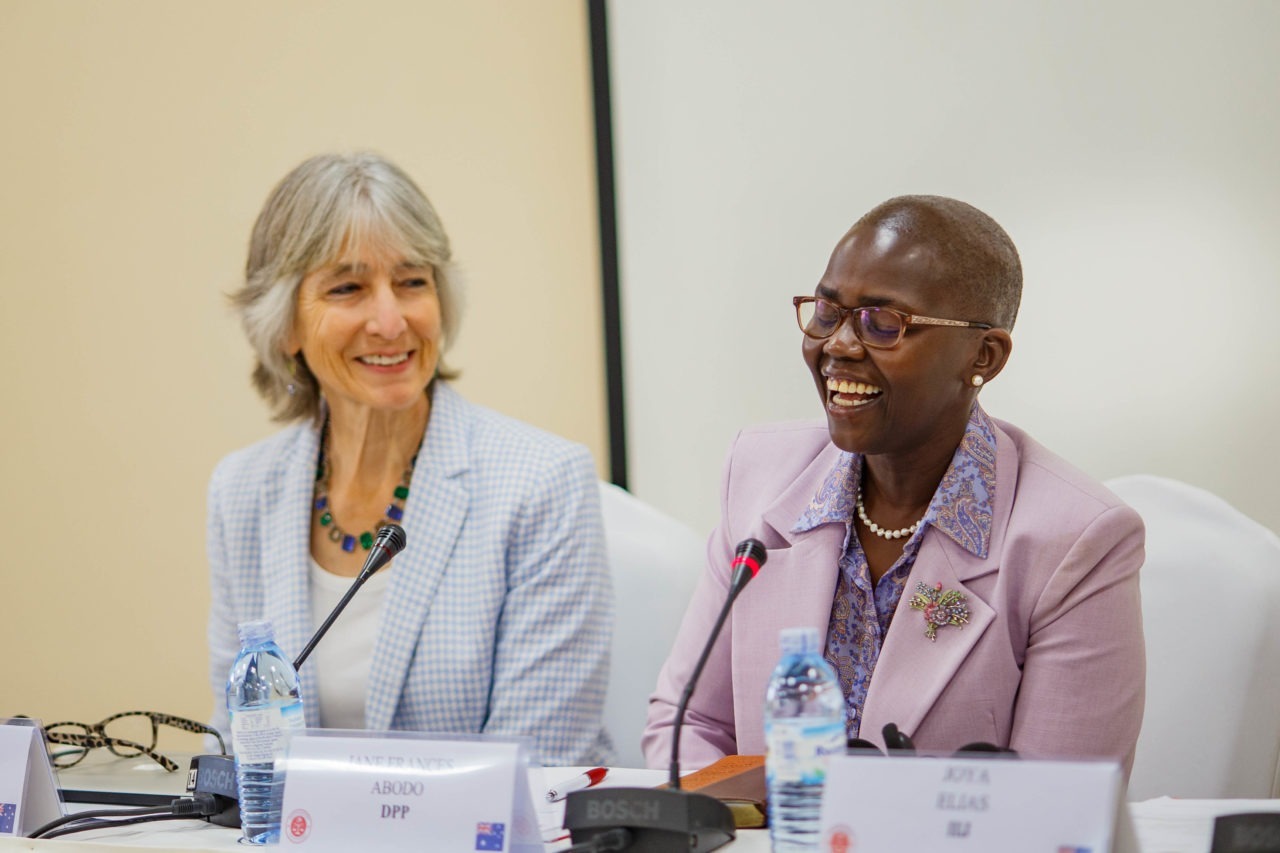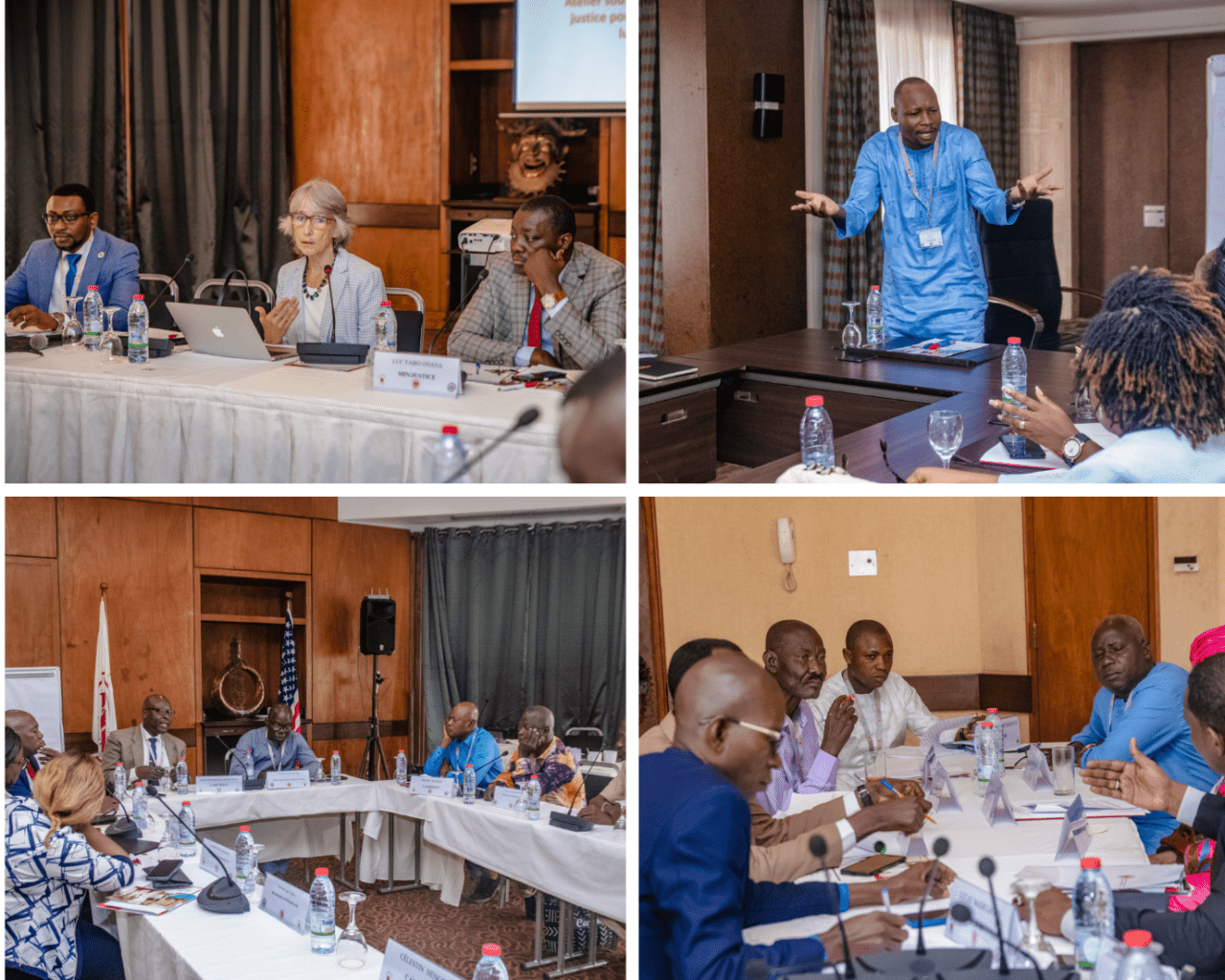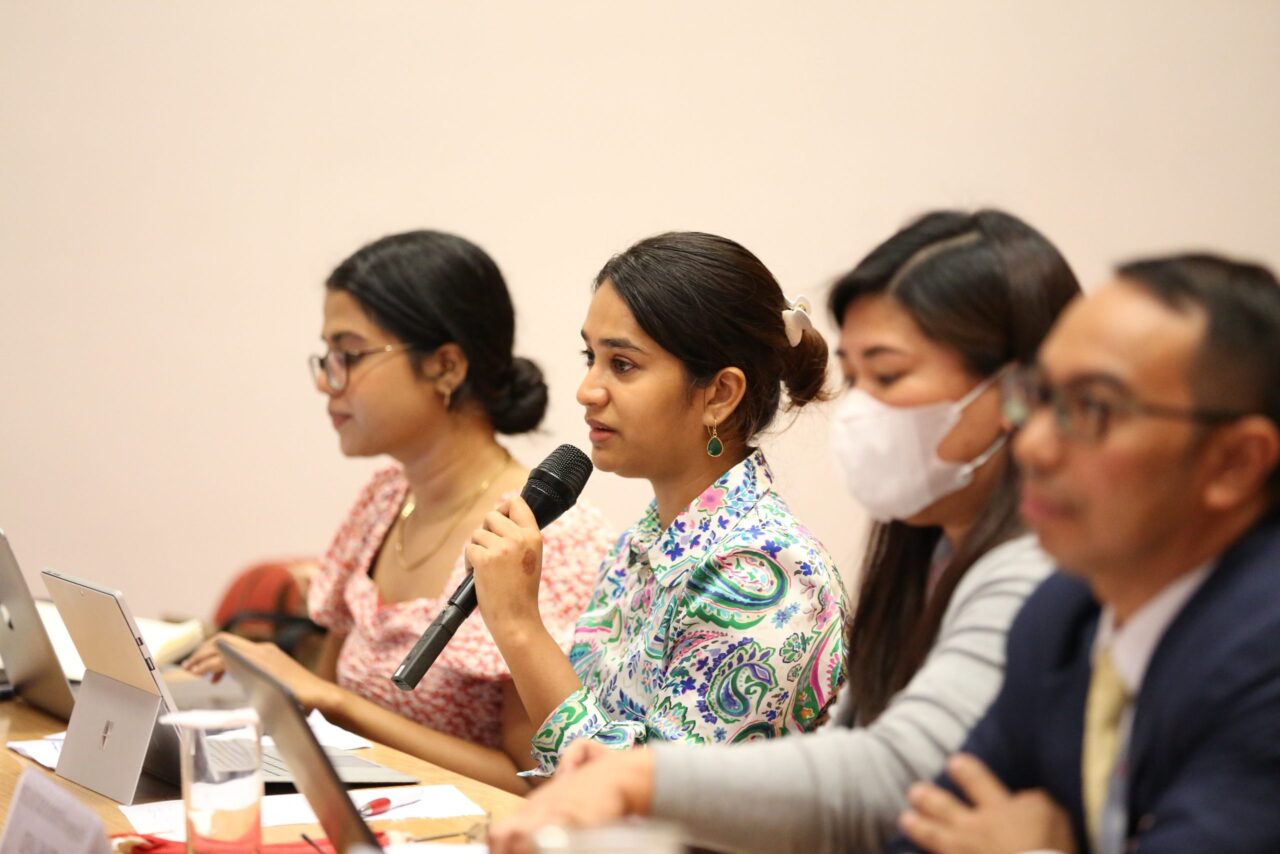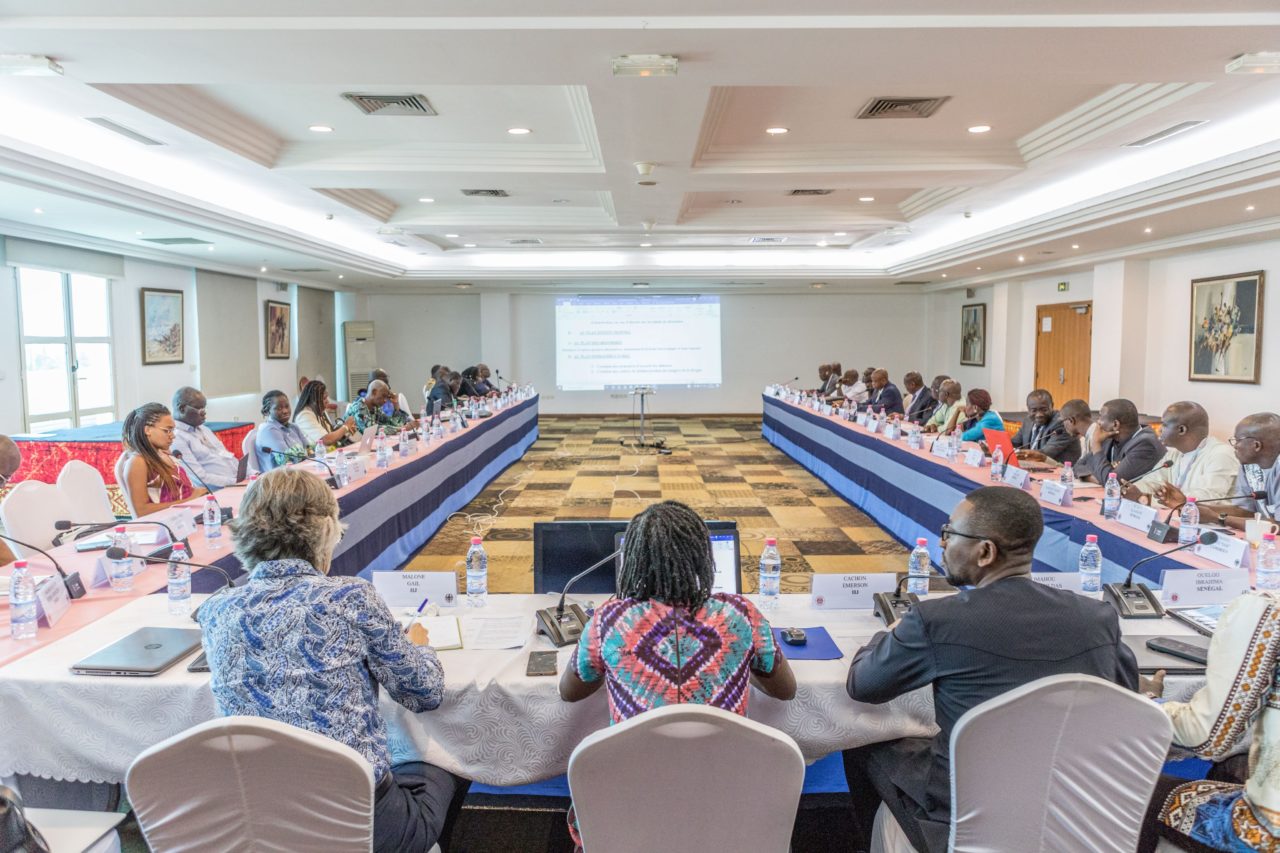Gender Dynamics in Terrorism
The IIJ is dedicated to promoting gender parity and encouraging equal gender representation in all its programmes. It offers specialised initiatives that address the gendered aspects of terrorism and create forums for sensitive discussions to address biases that hinder the effective investigation and prosecution of terrorist acts. The Programmatic Unit’s gender work is focused on two main areas: the investigation and prosecution of sexual violence linked to terrorism (TRSV) and understanding the diverse roles women play in terrorism (WIT).
Investigation and Prosecution of TRSV: These programmes delve into the complex gender issues surrounding sexual violence committed by terrorists, including why victims may not report such crimes, how criminal justice systems respond to sexual violence cases, and the crucial collaboration between criminal justice actors and non-governmental organizations to meet survivor needs. In February 2023, the Programmatic Unit held a TRSV investigation workshop in Malawi for officials from Tanzania, Uganda, Kenya, and Malawi. Adopting a survivor-centric approach, the workshop focused on victim interviewing techniques, evidence gathering and analysis, and forensic investigations. Participants discussed innovative approaches to overcoming societal, religious, and traditional barriers to reporting and investigating sexual violence linked to terrorism. The following week, a regional workshop in Uganda brought together legal experts, prosecutors, and judges from Burkina Faso, Uganda, Nigeria, Kenya, and Mozambique to address prosecution challenges. The workshop, funded by Australia and supported by Honourable Lady Justice Jane Abodo, Uganda’s Director of Public Prosecutions, focused on integrating national and international jurisprudence into TRSV prosecutions, managing unique victim and evidence-related challenges, and borrowing promising regional models and tools for successful prosecutions. It emphasized the successful prosecution of sexual violence by linking it to other types of organized crime and promoting cumulative prosecutions for international core crimes, including those related to sexual violence.
In March 2022, the International Institute for Justice and the Rule of Law (IIJ) held its first Online Expert Group Meeting on Addressing the Impunity of Sexual Violence in the Context of Terrorism. The event brought together around fifty experts to share their findings on recent typologies and emerging threats of sexual violence in conflict, legal pluralism’s impact on access to justice, and multidisciplinary reparation mechanisms for victims of sexual violence. The meeting launched a series of workshops in 2022 and 2023 aimed at building capacity and training officials on addressing the Impunity of Sexual Violence linked to terrorism in countries affected by terrorist activity across West, East and Central Africa.
Participants discussed access to justice across all dispute resolution mechanisms, including statutory, religious, and customary tribal norms, current legislation under effect in different states, national counter-terrorism strategies, gendered violence in the fractionalization of conflicts, and multidisciplinary reparation mechanisms. Practitioners from various organizations also presented their programmatic strategies for assisting victims of terrorism. The event presented a new, holistic, multifaceted programme to address this issue, which included recommendations to counter women trafficking and abduction by terroriist groups, develop programs for women to act as disengagement agents and assist in deradicalisation programs, and address legislative gaps in national legal frameworks related to sexual terrorism.

The IIJ tailored workshops in September 2022 and February 2023 based on the findings of the EGM, which include training criminal justice officials on means to integrate survivor-centric evidentiary and prosecutorial rules, developing an effective response to countering trafficking in persons by terrorist groups, and addressing the cultural and spiritual connotation to sexual violence. The IIJ also aims to continue training investigators on the importance of having rules of evidence that are survivor-centric and to involve actors in Shari’a courts for further insight on how to address the issue of sexual violence in the religious judicial system.

Regional Workshops
Enhancing the Investigations of Crime of Sexual Violence linked to Terrorism for Civil law-based legal systems of Francophone countries in West Africa
To address the specific needs identified at the IIJ Expert Group Meeting in March 2022 on Addressing Impunity for Terrorism-Related Sexual Violence, the IIJ, in collaboration with the Ministry of Gender and Family in Burkina Faso and the Sahel Security Strategic Reflection Network (Réseau de réflexion stratégique sur la sécurité au Sahel- 2r3s), organised a regional workshop on the investigations of terrorism-related sexual violence for criminal justice practitioners from Burkina Faso, Central African Republic, Mali, Togo and Benin.
This three-day workshop focused on victim and perpetrator interviewing techniques, the corroboration, collection and analysis of evidence collected, all while using case studies from conflict zones. It also explored innovative approaches to societal, religious and traditional barriers that have historically hindered the investigation and prosecution of cases of terrorism-related sexual violence (TRSV). Experts made several recommendations to address the issue. These included creating specialised sub regional courts, strengthening the capacities of actors on psycho-traumatic stress disorder for survivors, and developing training and technical manuals for judicial actors. They also emphasised the need for international cooperation in the search for evidence and research on both endogenous and exogenous causes of sexual violence linked to terrorism. The workshop also highlighted the feminisation of violence in the region and called for further research on the topic.

The IIJ hopes to develop a modus operandi manual for effective victim care at the national and sub-regional levels.
The Director of the Cabinet of the Minister of Justice and Legislation in Togo noted that the workshop “allowed for a deeper understanding of the issue and set recommendations for integrated centres and procedures.”

Plans under this Initiative
Working jointly with Strong Cities Network, the IIJ is designing a regional workshop titled ‘Enhancing National-Local Coordination on Prevention, Preparedness and Response to Radicalisation and Terrorist Attacks.’ Planned for July 2023 , the workshop will bring together relevant national actors (law enforcement, prosecutors, judges, policymakers) and local players (including city officials, community and faith leaders and civil society representatives) to discuss the importance of national-local cooperation in preparing for and responding to a terrorist attack.
This workshop will allow practitioners to consider case studies of home-grown terrorism, and identify challenges faced by each sector within their respective regional contexts. Practitioners will solve table-top exercises by applying the Rabat-Washington Good Practices and other related GCTF framework documents. The transnational threat between Southeast Asian countries highlights the need for a regional approach that takes into account insurgent associations and modus operandi in neighbouring countries. It is in this spirit that the IIJ will continue to build workshops addressing Good Practices in preparing for and responding to a terrorist attack in light of respective national approaches in 2023.

